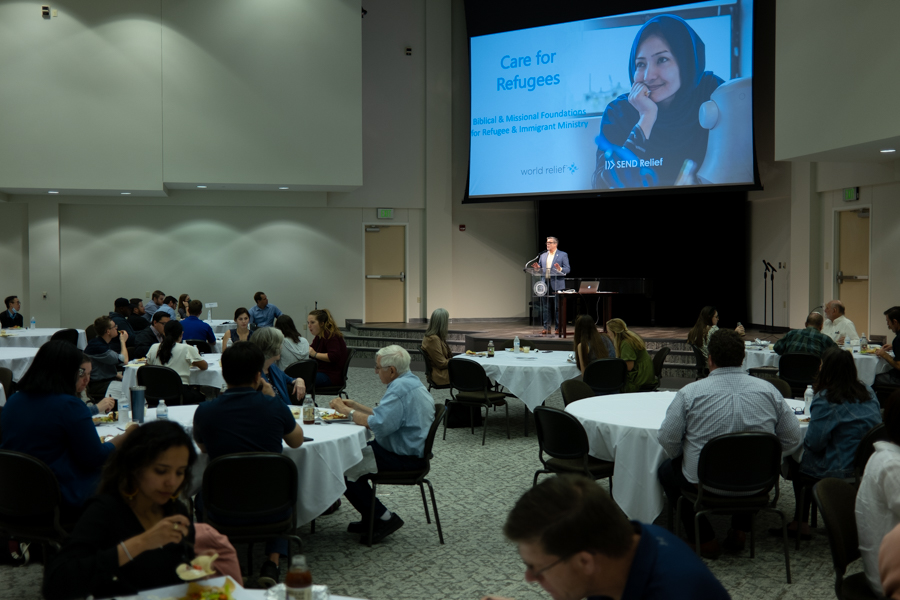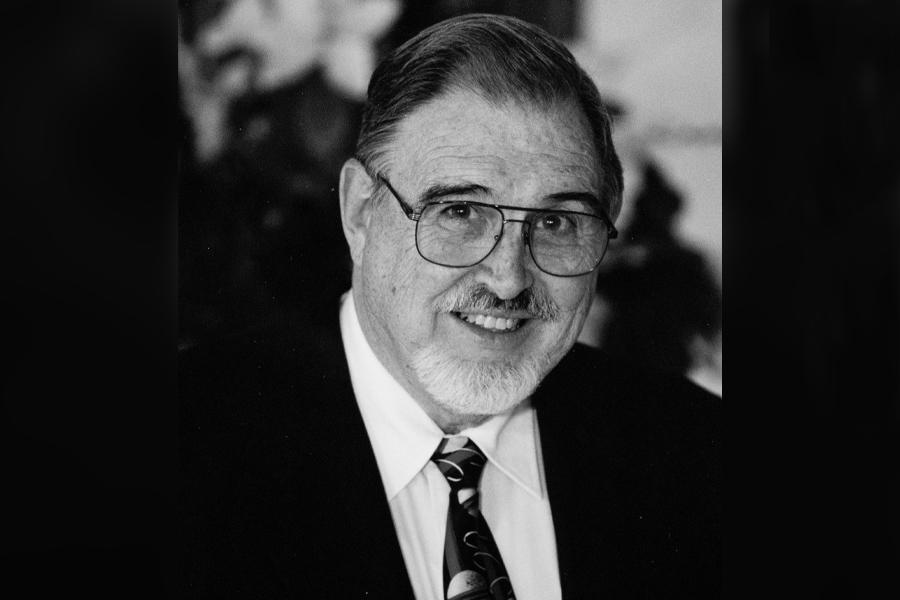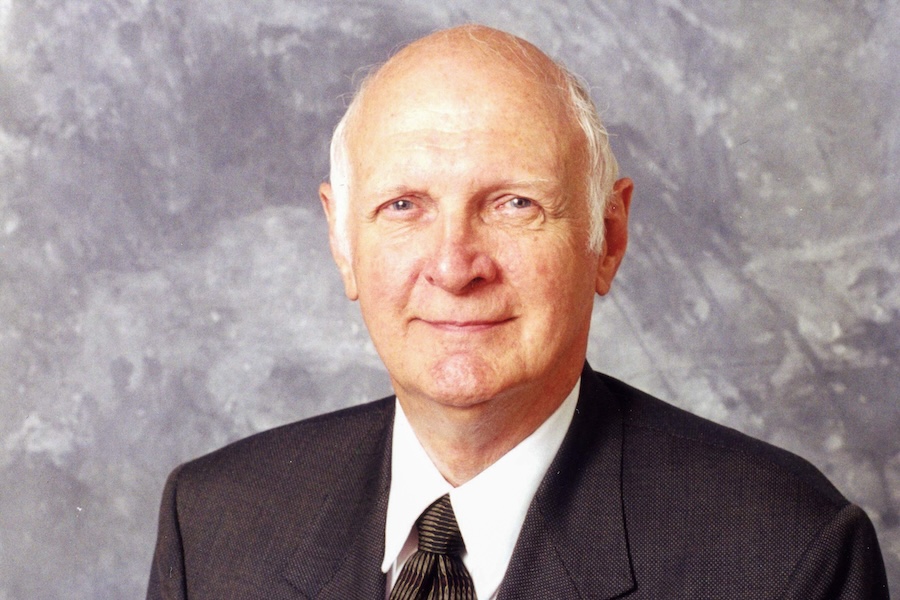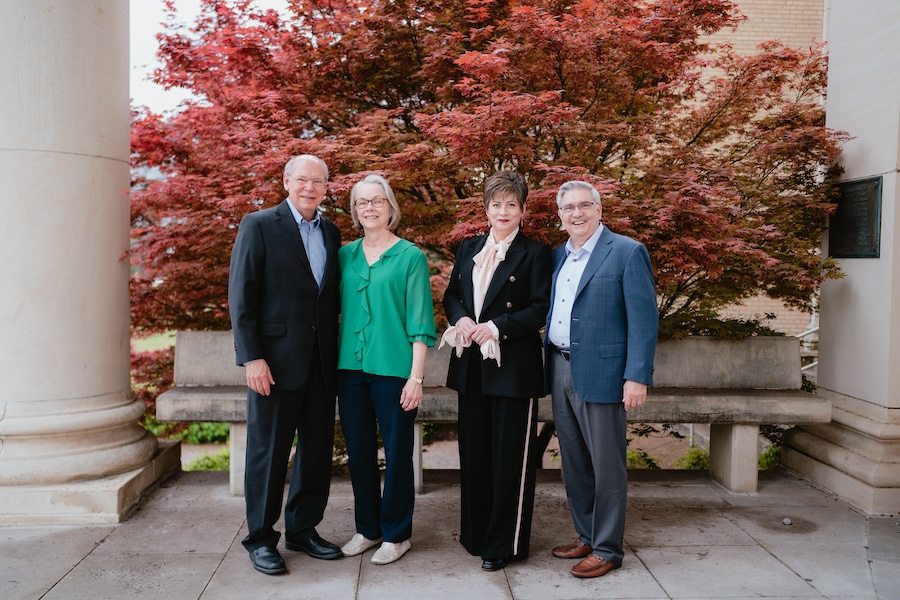Christians challenged to care for refugees during workshop

In partnership with Send Relief and World Relief, the World Missions Center at Southwestern Baptist Theological Seminary hosted a Care for Refugees Workshop, October 26. The workshop offered individuals an opportunity to learn about what is happening with refugee resettlement and immigration in the United States, and how to mobilize their families and churches to welcome refugees to their community.
“The nations have been brought here by a sovereign God,” said Ian Buntain, director of the World Missions Center and associate professor of missions, as he thanked those in attendance for their willingness to consider how they can “practice the spiritual gift of hospitality.”
“Bless you for wanting to be trained on how we might exercise that gift for the sake of the Gospel,” said Buntain.
During the workshop, Matthew Soerens, the U.S. director of church mobilization for World Relief, offered biblical principles for Christians as they consider what it means to care for refugees and immigrants. World Relief is a global Christian organization that addresses humanitarian issues with a specific focus on assisting refugees and immigrants in transition and to build a new life in their new country and community.
“One thing that is distinct about World Relief is our mission is not just to resettle refugees or help immigrants integrate into new communities,” Soerens said. The ministry organization also exists to “empower local churches to serve. Our goal is to have the local church at the center of that process and build those relationships with people.”
Soerens first noted that despite having partnered with Southern Baptists and other evangelical churches for decades, the topics of immigration and refugee resettlement have become “heated issues” even among American Christians.
Citing a 2015 Lifeway Research study, Soerens said that while most pastors admit to the importance of supporting refugees, only a few churches do the work to care for refugees. The church, he said, should view the arrival of refugees and immigrants as an “opportunity to introduce Jesus.”
In another finding from the survey, Soerens said, only about 12 percent of evangelicals said the Bible was their primary influence on how they think about immigration. In contrast, he said World Relief believes the conversation should always begin with the Word of God.
“If we’re followers of Jesus in this room, then we are followers of a refugee,” Soerens said.
“We don’t have a lot of details about how Jesus, Mary, and Joseph were treated when they got to Egypt and we don’t know if there’s any legal framework at play there from the text,” Soerens said. “What we do know is that Jesus can very personally identify with the plight of having fled His home, and I think that ought to inform how we think about these roughly 26 and a half million people around the world today who are in similar circumstances.”
Another biblical principle, Soerens continued, is God’s concern for the vulnerable, referring to commands in Scripture to care for such people as orphans, widows, and foreigners.
“Often you find that word for an immigrant or a foreigner right alongside the orphan and widow as groups who are vulnerable, who God makes very clear that He loves and then He explicitly commands His people to love and care for as well,” Soerens observed from Scripture.
Soerens then reminded attendees of the command to “love your neighbor as yourself.”
When considering how to think about issues of refugee resettlement and immigration, Soerens said that one cannot only define that command as caring for people who share one’s nationality, religion, or any other distinction.
Soerens concluded that to welcome refugees is ultimately a challenge to consider the church’s opportunity to live out the Great Commission as the nations come to the United States and to one’s community.
“Of course we should do that by sending people around the world, but we have missed something profound if we don’t notice that God in His sovereignty has sent the nations to us,” Soerens said.
Regarding evangelism to refugees and immigrants, Soerens emphasized they do not pressure people to change their religion, rather, “evangelism rightly understood” is an “open invitation to a relationship with Christ.”
In a call to action, Soerens offered six ways in which Christians can support and care for refugees, that can be remembered with the acronym “PLEASE”: prayer; listen to the stories of the Bible and the stories of refugee experiences; empower churches abroad; advocate for the voiceless and for public policy that reflects biblical values; serve locally through refugee ministries; and evangelism to refugees and immigrants.
In addition to Soerens’ presentation, the workshop offered a time of question and answer with Send Relief, an SBC compassion ministry led by the International Mission Board and the North American Mission Board, and World Reliefpersonnel, as well as brief overviews of their ministries.
Located within two miles of the Southwestern Seminary campus, the World Relief North Texas team offers resources for students and their families to volunteer and mobilize to welcome refugees to the community.
Additionally, the World Missions Center at Southwestern Seminary is a primary resource for students who want to get involved in refugee ministry and learn how to reach the nations with the Gospel beginning in Fort Worth.For information about local refugee ministry opportunities through the seminary, World Relief, or Send Relief, email wmc@swbts.edu, or visit the World Missions Center located in Mathena Hall 108.



